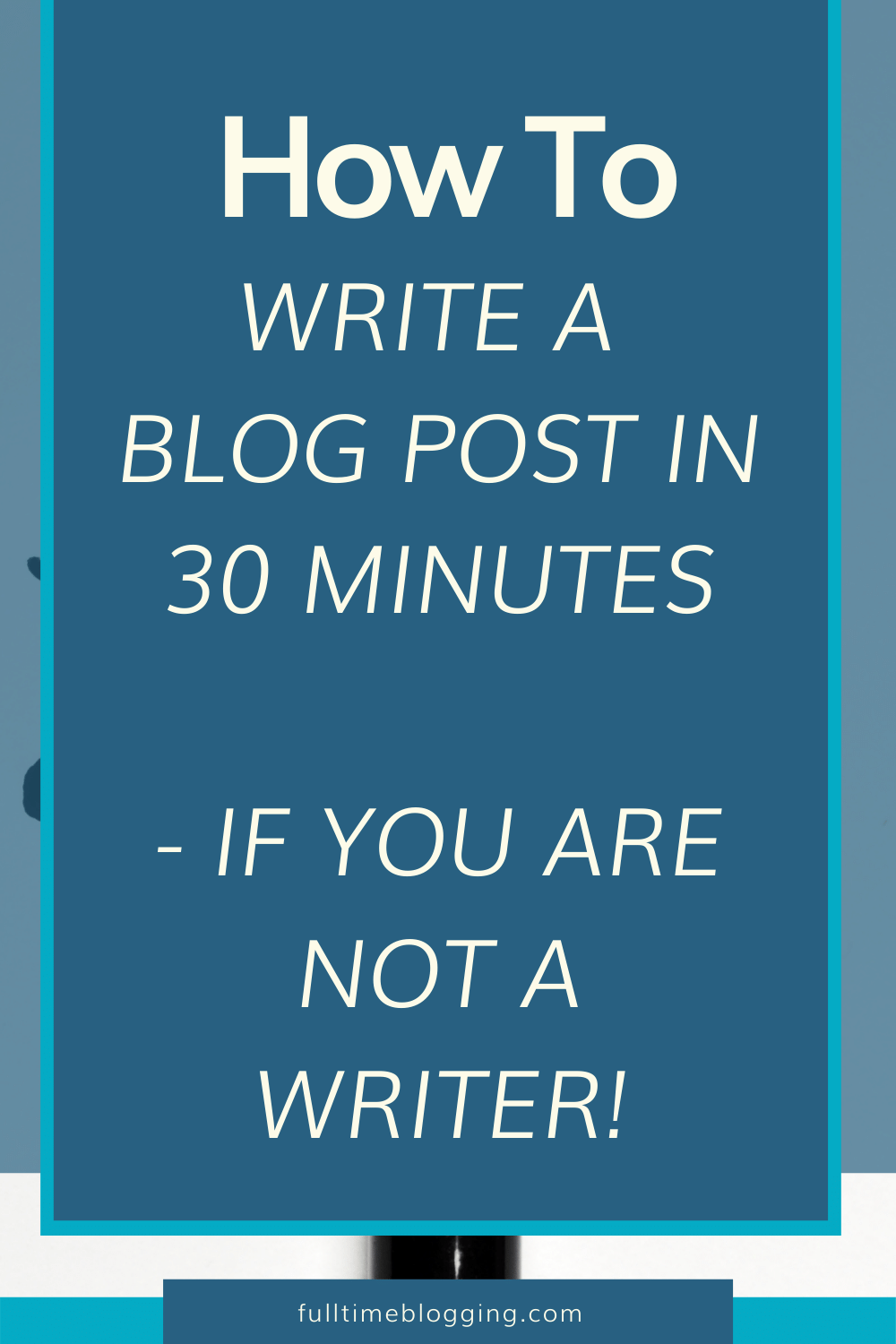You don't have to be a writer to write. In fact, many people who are not writers are looking for ways to improve their writing skills because they want to do better, or simply make more money with their words.
In this post, we will discuss 11 simple tips that will help you start the journey of becoming an excellent writer - even if you are not a writer to begin with.

Tip #1: Write About What You Know And Care Deeply For
If you write about something you are passionate about or is in your area of interest or expertise, this will make the content easier to produce and more engaging.
Write from a place that resonates with others who share similar interests so they can feel connected too when reading through them.
Tip #2: Read About The Topic Before Writing Something About It.
If you don't know what the topic is about, how can you reliably convey the message? That's why reading or watching videos about it is a good start.
If you can't say what needs to be said in a sentence, then break up the content into two or three sentences instead of trying for one long paragraph.
Long paragraphs are hard on readers' eyes. They have too much information thrown at them all together without any warning about when something new is coming next. This brings me to the next point.
Tip #3: Use Short Sentences Whenever Possible.
A sentence should be no longer than six lines long before breaking up into two separate ones. The longer they are, the harder they are to read.
The longest paragraph in this blog post has only four lines. They are easier on readers' eyes.
Some readers struggle when there's too much information being thrown in their direction altogether, like an avalanche. LOL.
Break down paragraphs more often.
Tip #4: Always Remember To Keep Your Writing Simple.
It's okay if you don't know the word for a particular concept or idea, just use one that is close enough and people will understand what it means!
Tip #5: Start With The End In Mind.
What does your write-up hopes to achieve? Outline it and start elaborating per point.
Many people skim-read articles online these days before deciding whether something merits their time investment. That's why you have to make sure each new point starts off by introducing itself clearly using headings - H3s (or H4s, only when necessary).
Tip #6: Put Yourself In Your Audience's Shoes.
What do you think will make your audience read the post? What would be most helpful to them in terms of what they are looking for or need at this moment? Write about that!
Tip #7: Don't Edit While Writing.
Just write and let it flow out naturally without overthinking things too much. Come back later with a fresh mind when editing is needed (or not).
This way, it won’t feel like there are barriers between your thoughts coming up and your paper/screen.
We can get stuck trying hard thinking how something should sound before actually getting down into putting words together.
Tip #8: Add A Call To Action At End Of The Article.
For readers who want more information on any point you made in your blog post, or are interested enough, commanding them to do something (i.e. subscribe to your blog, click on a link, etc.) is ideal since they will most likely do it.
This should be placed after all other points have been addressed and summarized so it's not missed by anyone reading through quickly without scrolling back up again.
Tip #9: Be Consistent With Your Writing Schedule And Goals.
If you want to write more, then set a goal of writing for at least 20 minutes every day.
If this is not possible because your schedule doesn't allow it or the time just doesn’t work out right with other responsibilities, try and find another window during which there are no distractions so you can focus on getting some words down.
You will be surprised by how much progress occurs over an extended period when consistency exists!
This also applies if one wants their blog posts published daily. Create content ahead of time before the publishing date arrives each week/month etc., rather than trying to catch up.
Tip #10: Keep Writing. It Is The Only Way To Get Better At It!
Everyone has to start somewhere. Great pianists were once beginners. The same is true for becoming a writer.
When starting out, write one blog post every day. It's always best if there is consistency.
The only way to get better at writing is by doing it. So, keep on going!
Tip #11: Don't Be Afraid To Ask For Help. Let Jarvis Help You!
Jarvis from Jarvis.ai is an online writing assistant that will help you write a blog post in less than an hour.
Jarvis will also help you to write anything, even a book! Just type your idea and press "Compose" in its "Long Form platform." You'll never struggle writing EVER AGAIN.
If you sign up now for free, you'll get extra 10k credits in your account!
Conclusion
There are many ways to be a writer. You can write for your own blog or you could also become an editor, proofreader, and more!
What should you do if your writing is not good?
Keep practicing it. You will get better with time as long there's consistency in the process of doing so - just like anything else that requires practice (e g. playing any musical instrument).
The only way one becomes great at something is by putting consistent work into improving themselves over extended periods.
This applies whether someone wants to publish content daily on social media platforms such as Facebook/Twitter etc...or simply create posts ahead before the publishing date arrives each week, month, year, etc.
It doesn't matter where people start from. The earlier you start doing it, the sooner you'll get better at it.




Hello. These are great tips. I personally prefer writing content rather than exposing myself on video or podcast. I am introverted, what can I say. To the point, I normally take 2 hours to write a 1000 words article. That is why I relate with tip #4. I tend to overdo my paragraphs and decorate phrases more than I should.
I also personally find writing more satisfying than getting myself on video or podcast, but there are many different ways of expressing oneself creatively. 🙂 So yes, let’s stick to what is comfortable for us. 🙂
My first blog post took me forever to write. it was hard initially but now it got so much better. Still a large room for improvement though. Sometimes it took way longer when I choose a topic I’m not familiar with. I like learning new things and share with my readers. Gathering information takes time. So is verify facts. I tend to go through several sites, reviews and studies to ensure information are correct. These slow my writing speed. Anyway, thanks for bringing Jarvis to light. I like the idea of asking for help from a virtual writing assistant.
When we start writing, it can be difficult. It was hard for me in the beginning but now I find that with each day, my progress has become easier and more fluid. There are still lots of things I want to improve on too. This blog post took a lot less time than some past ones, you just have an open mind about the new or different ways to supercharge your progress. 🙂
I have probably heard all these tips before but I really needed this reminder. It’s so easy to get stuck in your own ways. I was struck by how easy it was to read your article (and skim it to get a sense of it). Using more space and shorter sentences really makes a big difference. When writing, I think we need to get reminded that we write for someone. Not for ourselves.
Hi,
Hope you got something out of this. 🙂
Cheers,
Pitin
Wow is a really good article. Was a little surprised to read that it still took you approximately an hour or so to write. Was that due to the learning curve and something you think you’ll greatly be able to reduce with more use? Thanks!
Hi Valerie,
I think the more you use it, the more you’ll be faster with your process. But hey! Even 1 hour for a 1k post is already not bad, hahaha!
Not everything that Jarvis gives me makes me happy. So I have to feed it with pointers/starting points every now and then, so it will give me new ideas. And of course, I still have to check grammar, proofread, and all.
Cheers,
Pitin
Great article! My favorite tip is to write consistently. Practice is definitely the most important factor to writing better and faster. When I first started blogging, I took about 2 hours to write 700 words. Now I take half the time to write double the words. In addition to practicing, I would recommend going all out without thinking about what people will think about your post. It’s better to get content out than get stuck in analysis paralysis.
Well, think of that as “thinking less” because when we don’t put constraints on ourselves at all (even what people will say) then our creativity really does bloom. 🙂
This is very good information, that I found extremely helpful. My issue with writing is getting halfway done and delete without finishing as I’m afraid what I write people will not like or how I say it. Have never heard of Jarvis, will look into this for additional help on writing! Thanks for sharing this valuable information.
Hi Janette,
You have to try Jarvis. He’s like an assistant researcher/junior writer for a fraction of a cost. You can even start with 10k words at no cost. 🙂 Let me know how it works for you!
Cheers,
Pitin